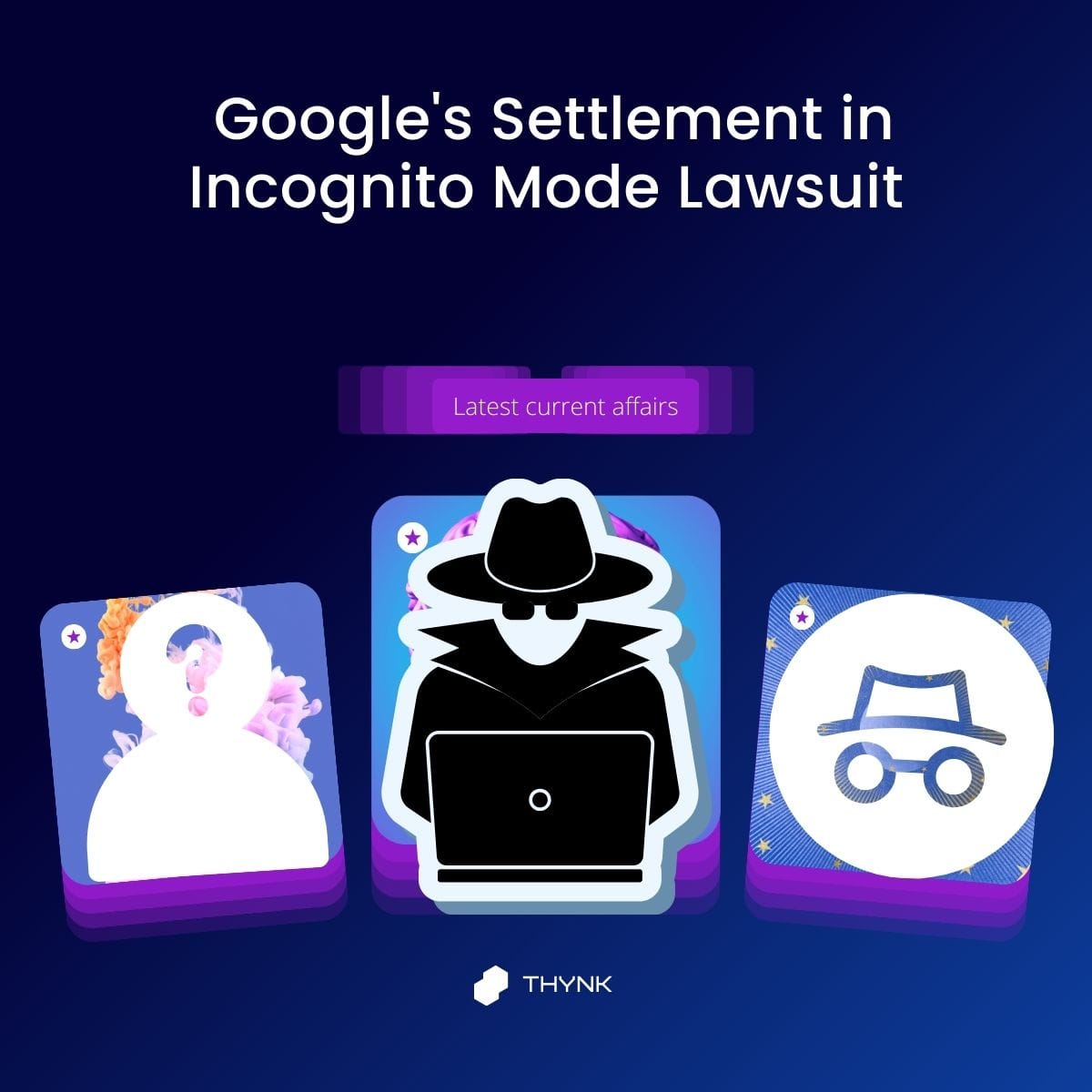
Latest current affairs are that Google has recently settled a substantial lawsuit amounting to ₹41,000 crore over allegations of tracking user data during ‘Incognito’ mode browsing.
Accusations Against Google
Accused of secretly monitoring the online activities of users in Incognito mode, Google’s parent company, Alphabet, chose to settle the significant lawsuit. Reports from Reuters suggest that the tech giant was spying on private user data while users believed they were browsing in privacy.
Lawsuit Overview
The class-action lawsuit accused Google of clandestinely tracking the internet usage of millions who assumed their browsing was private, leading to a settlement. The lawsuit was presided over by US District Judge Yvonne Gonzalez Rogers in a California court, and proceedings have been put on hold following the settlement.
Settlement Amount and Terms
While the exact terms of the settlement remain undisclosed, the class action sought a payment of at least $5 billion, equivalent to over ₹41,000 crore. Google’s legal representatives stated that a binding term sheet had been agreed upon through mediation, with a formal settlement expected for court approval by February 24, 2024.
Allegations and Google’s Defense
The case against Google involved allegations of tracking user data in Incognito mode without their knowledge, utilizing Google Analytics, cookies, and apps.
Google’s Defense
Incognito mode, promoted as a “private” browsing feature by Google, claims that browsing history cannot be tracked using cookies. However, the lawsuit asserted that Google accessed private data through Incognito mode, targeting users’ preferences.
Individual Claims and Judge’s Ruling
The individual filing the class action claimed that Google accessed their private data through Incognito mode to discern their likes and dislikes. Google attempted to have the lawsuit dismissed, but the judge rejected the request.
The lawsuit contended that Google’s actions transformed the company into an “unaccountable trove of information,” allowing it to learn about users’ friends, hobbies, favorite foods, shopping habits, and potentially embarrassing online searches.
Judge’s Evaluation and Case History
During the proceedings, Judge Rogers questioned whether Google had made a legally binding promise not to collect users’ data during private browsing. The judge referred to Google’s privacy policy and other statements by the company that suggested limitations on the information it might collect.
Lawsuit Timeline
Initiated in 2020, the lawsuit encompassed “millions” of Google users since June 1, 2016, seeking a minimum of $5,000 in damages per user for alleged violations of federal wiretapping and California privacy laws.



Leave a Reply